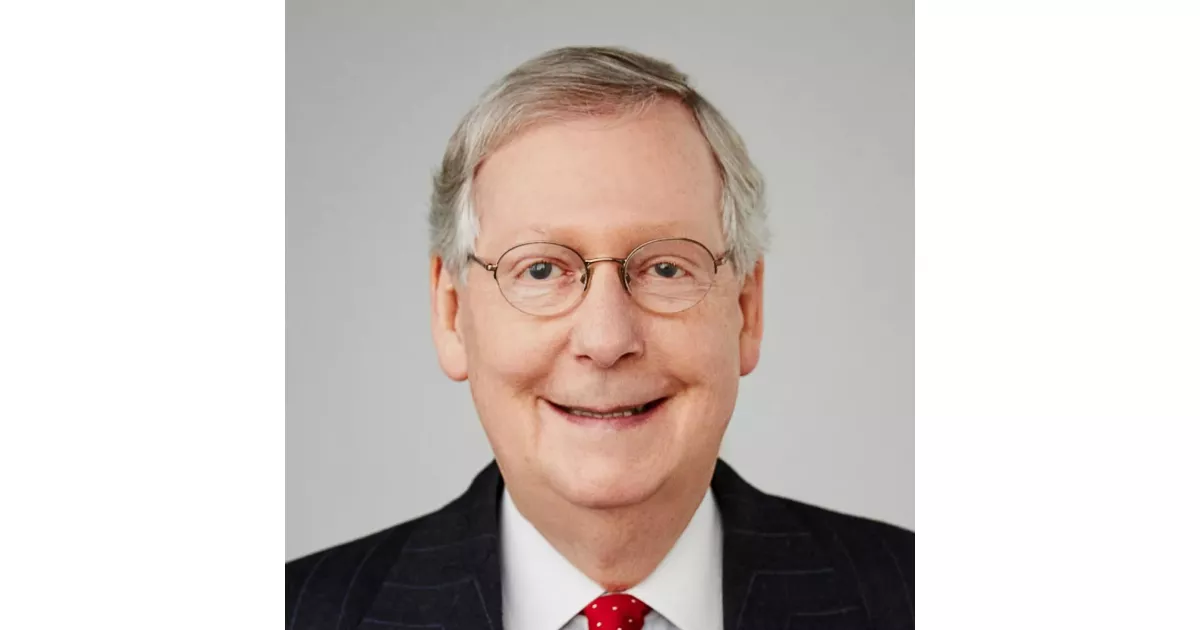Life is full of challenges, and Mitch McConnell faced many. Discover key struggles and how they were overcome.
Addison Mitchell McConnell III is a prominent American politician and attorney currently serving as the senior United States senator from Kentucky, a position he has held since 1985. He is the longest-serving senator in Kentucky's history. McConnell's influence extends to his leadership within the Senate Republican Conference from 2007 to 2025, including terms as both minority and majority leader. Notably, he holds the record as the longest-serving Senate party leader in U.S. history, having served as majority leader from 2015 to 2021.
1938: Lowest Voter Support Since 1938
In 2014, McConnell faced Matt Bevin in the Republican primary, where McConnell's 60.2% victory represented the lowest voter support for a Kentucky U.S. senator in a primary since 1938.
1944: McConnell Paralyzed by Polio
In 1944, at the age of two, Mitch McConnell's upper left leg was paralyzed by a polio attack.
August 15, 1967: McConnell Honorably Discharged
On August 15, 1967, Mitch McConnell was honorably discharged after being diagnosed with optic neuritis and deemed medically unfit for military service.
1990: Closest Contest Since 1990
In 2008, Mitch McConnell's contest against Bruce Lunsford was his closest since 1990.
2008: McConnell defeats Bruce Lunsford
In 2008, McConnell faced his closest contest since 1990, defeating Bruce Lunsford by 6%.
2012: McConnell's low home-state approval rating
In 2012, a poll found that McConnell had the lowest home-state approval rating of any sitting senator at the time.
2013: Federal Government Shutdown
In 2013, the federal government shut down from October 1–17 after Congress failed to enact legislation to fund it.
2016: McConnell's low approval rating continues
In 2016, a poll indicated that McConnell continued to have the lowest home-state approval rating among sitting senators.
October 2017: McConnell Defends Record Amid Criticism from Trump Allies
In October 2017, after White House chief strategist Stephen Bannon and other Trump allies blamed McConnell for stalling the Trump administration's legislation, McConnell defended his record by citing Neil Gorsuch's confirmation to the Supreme Court.
2017: McConnell has highest disapproval rating among senators
In 2017, McConnell faced a high disapproval rating of 49%, the highest among all senators at that time.
2017: Republicans Fail to Repeal Obamacare
In 2017, Republicans failed to repeal the Affordable Care Act (Obamacare) during consolidated Republican control of government, dimming Mitch McConnell's reputation as a skilled political strategist.
2017: McConnell's approval rating trends downward
In the first quarter of 2017, McConnell's approval rating began trending underwater, with 44% positive and 47% negative.
July 2018: McConnell delays border wall funding until after midterms
In July 2018, Mitch McConnell stated that funding for the Mexico–United States border wall would likely be delayed until after the midterm elections.
December 2018: Senate passes appropriations bill without wall funding
In December 2018, the Republican-controlled Senate passed an appropriations bill without funding for the border wall. Despite this, Donald Trump ultimately refused to sign any bill that did not include wall funding, leading to a government shutdown.
December 22, 2018: Government shutdown begins due to border wall funding dispute
On December 22, 2018, the federal government entered a shutdown because Congress did not agree to Donald Trump's demand for $5.7 billion in federal funds for a U.S.–Mexico border wall.
2018: McConnell's worst approval rating
In the fourth quarter of 2018, McConnell had a 38% positive rating and a 47% negative rating among Kentuckians, briefly surpassing Claire McCaskill and Jeff Flake as the least popular senator.
January 25, 2019: Government shutdown concludes
On January 25, 2019, the federal government shutdown, which began on December 22, 2018, due to disagreements over funding for a U.S.-Mexico border wall, came to an end.
August 2019: Polls show McConnell's unfavorable rating
An average of polls from the end of July through August 2019 showed McConnell with 23% favorable and 48% unfavorable ratings.
September 2019: Morning Consult finds McConnell's approval rating underwater
In September 2019, the Morning Consult found that McConnell's approval rating had been underwater since the first quarter of 2017.
September 10, 2020: COVID-19 relief bill fails in the Senate
On September 10, 2020, a COVID-19 relief bill crafted by McConnell failed to pass the Senate due to a Democratic filibuster. Democrats deemed the bill inadequate, while McConnell defended it as a compromise.
2020: Collins edges out McConnell as least popular senator
In 2020, according to Morning Consult, Susan Collins became the least popular senator with a 52% unfavorable rating from Maine voters compared to McConnell's 50%.
July 26, 2023: McConnell freezes during press conference
On July 26, 2023, McConnell froze, unspeaking, for around 20 seconds during a press conference, prompting media reports. He later returned and stated he was "fine".
August 30, 2023: McConnell freezes again during press conference
On August 30, 2023, McConnell froze again during a press conference in Covington, Kentucky, and was led away by staff. His physician released a letter stating he was "medically clear".
Mentioned in this timeline

Donald John Trump is an American politician media personality and...

Bill Clinton the nd U S President - served as...

Barack Obama the th U S President - was the...

Ruth Bader Ginsburg was an American lawyer and Supreme Court...

Martin Luther King Jr was a pivotal leader in the...

The White House located at Pennsylvania Avenue NW in Washington...
Trending
3 months ago Kelly Services Recognized for Leadership in Staffing and Hiring Solutions in 2025 Rankings
2 months ago Brandon Lake Makes History as First Christian Artist on Amazon's SongLine.

9 months ago Warren Buffett's Investing Genius and Market Crash Strategy Revealed Again: A Timeless Advantage

9 months ago Maury Povich reflects on media; Connie Chung honored and encouraged to write memoir.

1 month ago Mark Warner Announces Reelection Campaign for Virginia Senate Seat in 2026

Howard Stern is a renowned American radio personality recognized for his provocative style on his show The Howard Stern Show...
Popular

Carson Beck is an American college football quarterback currently playing...
Curt Cignetti is an American college football coach currently the...

XXXTentacion born Jahseh Dwayne Ricardo Onfroy was a controversial yet...
WWE Raw a professional wrestling television program by WWE airs...

Stranger Things created by the Duffer Brothers is a popular...

Kristi Noem is an American politician who has served as...
